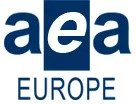Interview with Prof. Christopher DeLuca

Prof. Christopher DeLuca
Shaping the Future of Assessment: Dr. Christopher DeLuca’s Vision for a Human-Centred Approach in the Age of AI.
As we approach the 25th AEA-Europe Annual Conference in Cyprus in November this year, excitement is building around the theme “Advances in Educational Assessment Practices: Considering the use of Technology, Artificial Intelligence, and Process Data for Assessment in the 21st Century.” Among the highlights of the event is the keynote speech “From Artificial Intelligence to Assessment Innovation: Toward a More Human Future for Assessment Research and Practice” by Dr. Christopher DeLuca, a leading expert in educational assessment from Queen’s University in Canada. Dr. DeLuca’s work centres on innovative classroom assessment practices, with a particular emphasis on supporting the diverse needs of students and empowering teachers to cultivate assessment innovation in their classrooms. His research focuses on teacher learning and the critical role of assessment in enhancing educational outcomes.
In our conversation, Dr. DeLuca shared insights into the pressing challenges of today’s rapidly evolving educational landscape. His keynote will delve into the intersection of AI and educational assessment, offering a forward-thinking perspective on how these technological advancements can transform the way we evaluate student learning. But rather than simply advocating for more technology, Dr. DeLuca emphasizes the importance of maintaining the human elements that are crucial to meaningful assessment—creativity, collaboration, and community engagement. His argument is clear: while AI presents powerful tools, the future of assessment lies in enhancing these uniquely human capacities.
Reflecting on the conference theme, Dr. DeLuca’s keynote will delve into how assessment practices can evolve to address broader global challenges, such as sustainability and well-being. He suggests that the future of assessment be grounded in care and compassion, considering not just academic outcomes, but also the overall well-being of students and their connection to the broader community and environment. This holistic approach is essential in responding to the pressing issues of our time and creating a more humane educational experience.
One of the key takeaways from Dr. DeLuca’s address will be the role of educators in this rapidly changing landscape, especially as the integration of AI into educational settings can evoke mixed reactions—from excitement to anxiety. Dr. DeLuca understands these challenges. He says these reactions are all healthy and productive, as we cannot simply uproot core well-grounded assessment values and tenets overnight. He stresses the importance of supporting teachers through this transition. By providing practical models and frameworks for responses, the aim is to empower educators to embrace innovation while preserving the core values of effective teaching and assessment.
This year’s conference is not just about presenting solutions, but also about fostering dialogue and collaboration among educators, researchers, and policymakers. Dr. DeLuca sees the AEA-Europe 2024 conference as a unique opportunity for you to engage with cutting-edge ideas, share your experiences, and explore the future of assessment together. His keynote will serve as a starting point for these important conversations, encouraging you to think differently about the role of technology and AI in education and how we can collectively shape the future of assessment.
Whether you are an academic, a practitioner, or a policymaker, this is an opportunity to gain fresh perspectives on the future of educational assessment. Make sure to mark your calendar for Dr. DeLuca’s keynote as you will gain valuable insights into how AI can be integrated into educational assessment in ways that enhance, rather than replace, the human touch. His insights will consider new approaches that prioritize the well-being and holistic development of students and not only illuminate the possibilities but also inspire actionable steps that can be implemented in classrooms worldwide.
Interviews carried out by Amina Afif, member of the Communications committee.
